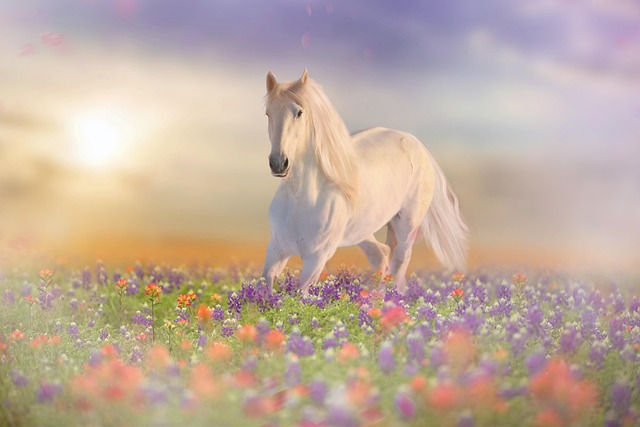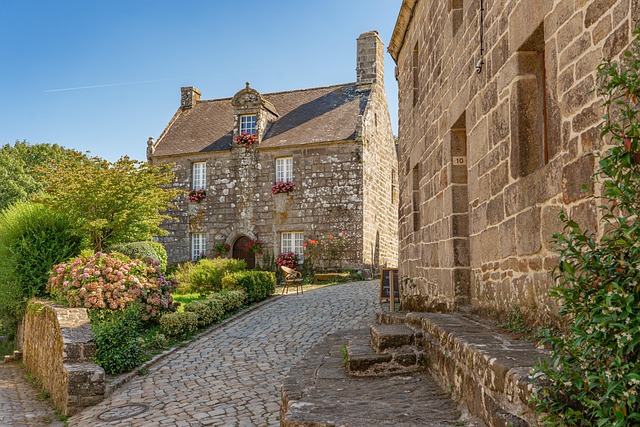
By Mac Mckechnie
By the time spring crept into the valley, Margaret had forgotten what warmth felt like. It had been a long, brutal winter – not just in weather, but in life. Her mother’s passing in December had iced over every part of her. The days had turned into pale grey copies of each other, stretching endlessly, heavy and numb. Even the fireplace, though it burned faithfully, hadn’t thawed the silence that had settled deep in her chest. Grief had a way of turning time to molasses – cold, sluggish, and grey.
She had gone through the motions because there was nothing else to do. The cows still needed feeding; the hens still clucked expectantly at dawn. In some ways, Margaret resented their routines. They hadn’t paused for mourning; the world, stubborn and indifferent, had continued spinning. Her mother was gone, and yet the sun rose every morning. The absurdity of it made Margaret grit her teeth some days.
Snow had blanketed everything for weeks, thick and heavy like a hand pressing down on the earth. Sometimes Margaret stood at the window, mug of tea cooling in her hands, watching as the wind sculpted ghostly dunes across the fields. She told herself that when the snow melted, maybe then she would feel something again. But even that seemed like a distant myth.
Spring didn’t ask permission. It never did.
One morning in late March, Margaret woke to birdsong. Not a full chorus – just one clear, tentative note outside her window, as if the bird was checking to see if it was safe to sing again. She lay there, listening, surprised at how loud it felt in the quiet. A few more notes followed, a shy melody breaking through the hush. For the first time in months, she didn’t turn back over and shut her eyes. She stayed awake and listened.
Later that morning, Margaret pulled on her thick coat and stepped outside. The cold still clung to the air, but it wasn’t the dead, brittle cold of January. It had softened at the edges. A wind stirred, carrying the scent of wet earth rather than sharp frost.
The snow was receding like an old man’s hairline, patchy and uneven. Dark, sodden earth peeked through in stubborn patches. She could see the stone path leading to the garden again, jagged and familiar. She walked slowly, boots squelching in the thawing ground, until she stood at the edge of her mother’s garden.
It looked ruined. Dead stalks, bent and blackened, lay tangled across the soil. The neat rows her mother had tended so carefully were lost beneath weeks of snow and decay. Margaret knelt beside the garden, her knees soaking through the fabric of her jeans almost instantly. Her hands hovered over the dirt.
Her mother had always said, “You have to dig into the cold if you want the warm to come.” Margaret had thought she meant compost, or maybe just stubbornness. Now, she wasn’t so sure.
She pressed her fingers into the soil. It resisted at first, stiff and clinging to winter. But beneath the crust, it was moist. Dark. Waiting.
A sob rose suddenly in Margaret’s throat, surprising her. She swallowed it down. Instead, she sat there in the mud, feeling the earth under her palms until the numbness in her chest cracked just a little.
That afternoon, she wandered into the shed. It smelled of old wood and rust, and the sunlight sliced through the slats, dust motes swirling like tiny fairies. She found the seed box tucked in its usual spot under the workbench. Her mother’s neat handwriting was scrawled across the packets and scraps of paper tucked inside: “Marigolds = joy.” “Lettuce prefers quiet.” “Tomatoes need whispering.”
Margaret smiled – a real one, the kind that comes with a pinch of ache. She thumbed through the packets, feeling the dry seeds shift inside. She chose a packet of marigolds. It seemed right.
She returned to the garden, the seed packet trembling slightly in her hand. Her breath came in little clouds, but the sun was warm on her shoulders. She knelt, smoothed a patch of earth, and, with fingers that still shook a little, planted the first row.
It was not a grand gesture. It was small, almost invisible against the vastness of her grief. But it was something.
Each day after that, Margaret returned to the garden. Sometimes she worked: clearing dead stalks, turning the soil, planting more seeds when she felt brave. Other days she simply sat there, letting the wind tousle her hair, letting the robins and other small birds sing around her. Some days she cried. Some days she only stared. But she showed up.
The valley shifted almost imperceptibly as April unfolded. Buds swelled on the branches. The stream, frozen solid for weeks, began to gurgle and mutter to itself. Grass returned in stubborn tufts, and the cows lifted their heads to sniff the changing air. Once or twice, Margaret caught herself humming as she worked, the tune shapeless but sweet. Small acts of hope, entered quietly into her days.
Margaret found herself talking aloud sometimes as she worked. Little things, like, “Too early for carrots,” or “Maybe sweat peas this year.” She wasn’t sure if she was talking to herself, to her mother, or to the stubborn, thawing earth. Maybe it didn’t matter. It felt like a conversation echoing through the breeze, a connection that grief had tried but failed to sever.
One afternoon, she heard a car crunching down the gravel drive. She wiped her hands on her jeans and stood up, squinting toward the road. It was her brother, Daniel. He got out, lifting a hand in a half-wave, his expression hesitant.
“Hey, Maggie,” he said.
“Hey,” she answered, brushing hair from her face. She hadn’t seen him since the funeral.
He looked around, taking in the patchy garden, the mud-streaked jeans, the faint smile she wore.
“Didn’t expect to find you out here,” he said.
“Didn’t expect to be out here,” she replied.
They stood awkwardly for a moment before Daniel crouched beside her, plucking a dead leaf from the dirt.
“Mum would’ve liked this,” he said quietly.
Margaret nodded, feeling that old pinch in her chest. But it was bearable now. It was sharp but not paralyzing.
They worked together that afternoon, talking in fits and starts about everything and nothing. The silence between them wasn’t heavy like it had been at the funeral. It was companionable, intertwined with shared memory.
By the end of April, green fingers poked through the soil like curious children. The marigolds were sprouting, tender and brave. The garden, like Margaret’s heart, was still patchy and raw. But there was colour coming. There was life pushing up where only frost had reigned.
Spring had not healed her. It had not fixed the aching shape her mother had left behind. Some wounds, she realized, aren’t meant to close cleanly. They leave tender seams, places where light can sometimes filter in if you’re willing to let it.
Spring had not given her back the past.
But it had given her something else: a beginning.
The garden, with its uneven rows and trembling green shoots, was a messy, stubborn prayer whispered into the earth. Margaret knew she would weep many more times. She knew grief would fold itself into unexpected corners of her days.
But she also knew now that even after the deepest cold, the earth remembers how to grow.
And so, she would too.
Maybe not today. Maybe not all at once.
But she would.
Because healing, she understood now, wasn’t about forgetting. It was about carrying love forward – tender, aching, alive – into whatever came next.
She knew she had started the journey, and in and amongst the pain of loss it felt hopeful something like the garden, – a new beginning.
Author Bio:
Mac Mckechnie is a Yorkshireman and lives in Barnsley South Yorkshire. Now aged 75 he has the luxury of sufficient time on his hands to go back to his love of writing. He leads a creative writing group in Barnsley, and one in Wakefield, and a lot of his ideas are sparked from work within those groups,
Mac is a family man at heart, has a few hobbies, is a member of the organisation u3a, which is an organisation for older people, where he leads a group with the sport Kurling, and also the writing groups. Mac is an active Christian, and the Pastor of his local church in Barnsley.
Mac has written several books, Sci-Fi being his favourite genre, but confesses that he is drawn to simple animal adventures from his younger days, owing much of their story composition to stories from Bu3a creative writing groups that Mac leads. His next animal book “Tilly” about the light-hearted adventures of a Border Collie in East Yorkshire is out soon on paperback and will also be available on Amazon.
Contact Details:
Mac Mckechnie
e:mckechnie31@btinternet.com
t: 07891745633





